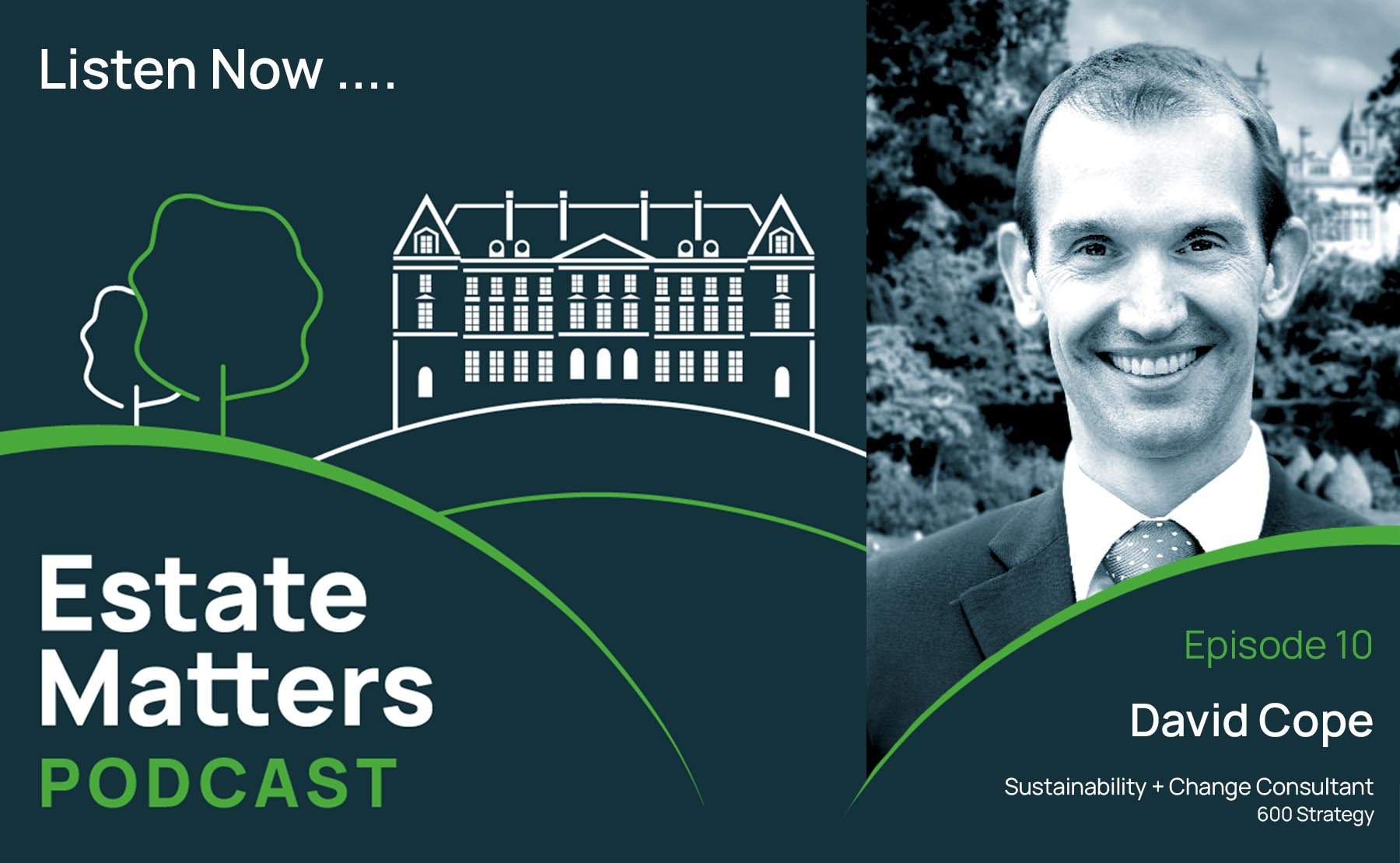Estate Matters Ep10: David Cope, Founder of 600 Strategy - Landed Estates: Heroes in the battle against climate change
Rural Estates can be ‘heroes’ in helping to reduce the impact of climate change – but they need to talk about what they are doing and engage with their communities.
That is the message from David Cope, sustainability expert, who founded and runs the 600 Strategy consultancy, advising clients on how to make their businesses more environmentally friendly and running programmes to help people become carbon literate.
David explains the important role rural Estates can play in tackling climate change in the latest episode of KOR Communications’ Estate Matters podcast.
He tells host Anna Byles that far from making excessive claims about their environmental credentials – so called ‘greenwashing’ – Estates need to shout louder about their work. “Personally, I think Estates have got the opposite problem to greenwashing,” he says. “They don’t talk enough about all the good stuff they are doing.”
But he says by showing “authenticity and humility” Estates can act as agents of change within the wider community. “Community engagement is absolute vital,” he says.
“A number of large Estates.. and a large number of smaller Estates have influence over such a large proportion of the country,” David adds. “Most people maybe don’t realise it, but they will be living in close proximity to an Estate. If an Estate - or Estates - can take action - and talk about it – there is a ripple effect that happens beyond the borders of the Estate, making the world a better place. I see the opportunity for Estates to be absolute heroes in solving the climate and nature crisis.”
David was an academic, who studied ecology, and did a PhD on the conflict between farming and wildlife. He worked in senior roles at the Department of the Environment Food and Rural Affairs and the Royal Botanic Gardens at Kew before setting up 600 Strategy.
He says his ambition has always been to try to make the world a better place and his interest in helping to tackle climate change stems from a radio programme on the subject that he heard as a child.
His first job on a country estate was at Parham House and Gardens in West Sussex as a teenager – selling ice-cream! He now works for a number of Estates, urban and rural, including the Duchy of Cornwall. The Duke of Cornwall’s Estate was his first client as a consultant and he continues to work with them, as a sustainability adviser.
He tells Estate Matters that clients come to him when they have decided to make some changes but are not sure how to proceed. He doesn’t see it as his job to tell Estates what to do – but to help them reach their goals once they have decided to take action on climate change and the environment.
His carbon literacy programmes aim to provide members of estate staff with the information they need to reduce the environmental impact of the business on the journey to carbon net zero.
David admits he has fears for the future, but the work of Estates leading the way in projects that tackle the impact of climate change gives him hope. “If you aren’t seriously worried about the world we are creating then you aren’t paying attention,” he warns, citing figures that show the heatwave summer of 2022 caused 3,000 excess deaths. But he said programmes large and small, especially those that engage with communities, provided hope.

